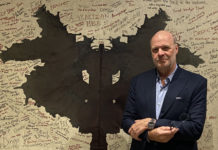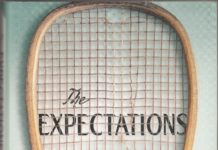By John Branston
Squash lovers, like stock pickers, are prone to be overly bullish. As a squash evangelist and former card-carrying, trend-spotting reporter, I have forecast seven of the last two surges in squash in my home state of Tennessee. But this time is different.
Elvis played racquetball, on his own court at Graceland, right up until the day he died. He and his Memphis Mafia did not, however, play squash and probably never heard of it, just like nearly everyone in this state where guitars and gold records outnumber squash racquets about one hundred thousand to one.
But there is more interest and participation in the game than I have seen since I started playing in 1998.
Memphis
Rhodes College looks like a place where squash should be popular: Gothic buildings, a brainy student body and two international courts. Twenty years ago, an administrator who had played squash in the Navy reasoned that squash courts would be eye candy for the sort of student athletes who apply to East Coast schools. Rhodes offers nineteen varsity and club sports to men and women, so the jocks have a game already.
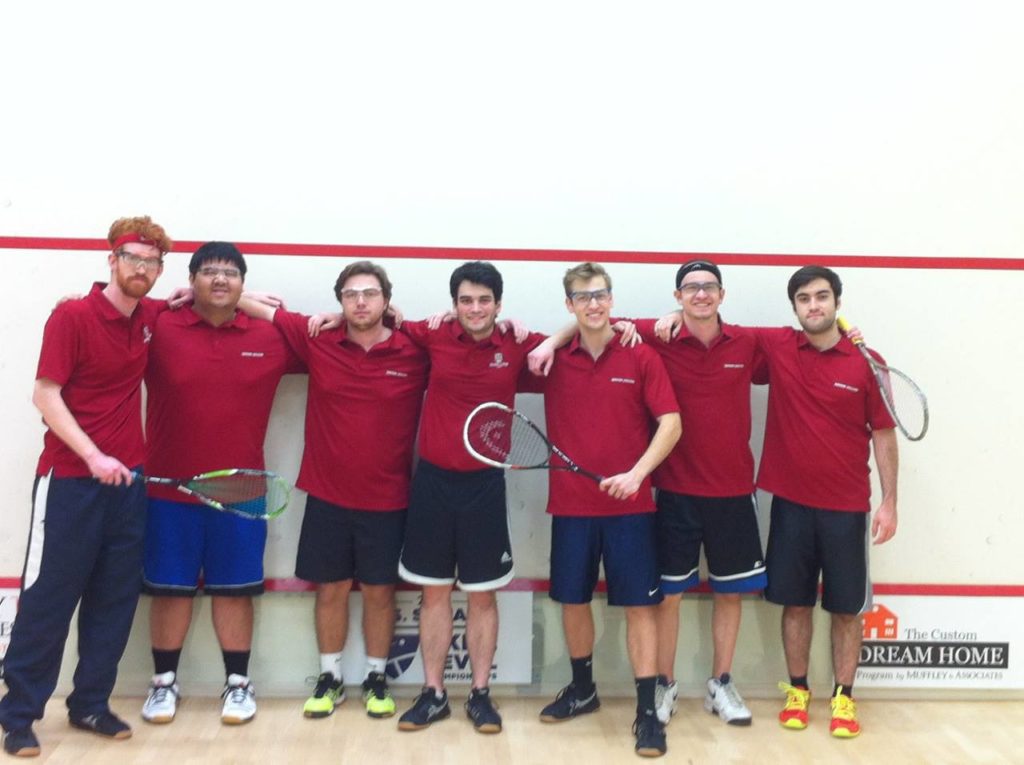
The leader of the nascent squash club is Ted Nollert, an English literature major from Oklahoma who had never touched a racquet until two years ago. A dozen faculty and community members, including an international contingent of doctors, keep the courts busy. One is Albert Johnson, forty-one, the best player in Tennessee. He learned the game with his high school basketball teammate K. C. Horne, a small-college national tennis champion. Last winter they held their own in a tournament in Atlanta, the citadel of southern squash.
The Racquet Club of Memphis, home of a stop on the ATP tennis tour, has twenty-eight tennis courts. One new squash court couldn’t pry anyone off the tennis courts; it didn’t help that the court was all but invisible behind a heavy curtain. Then a non-tennis player, pilot Chad Harris, took up the game, dropped twenty-five pounds, and persuaded a bunch of high school and college guys to play. A few months later, the curtain came down and the clinics picked up.
Nashville
In 2013 Vanderbilt University built two international courts, replacing two converted racquetball courts. For a college that recruits internationally and prides itself on having the best of things, the change was important. The annual Nashville Squash Open will have its third tournament this coming November, and the Nashville Squash Club roster has grown to ninety-five players.
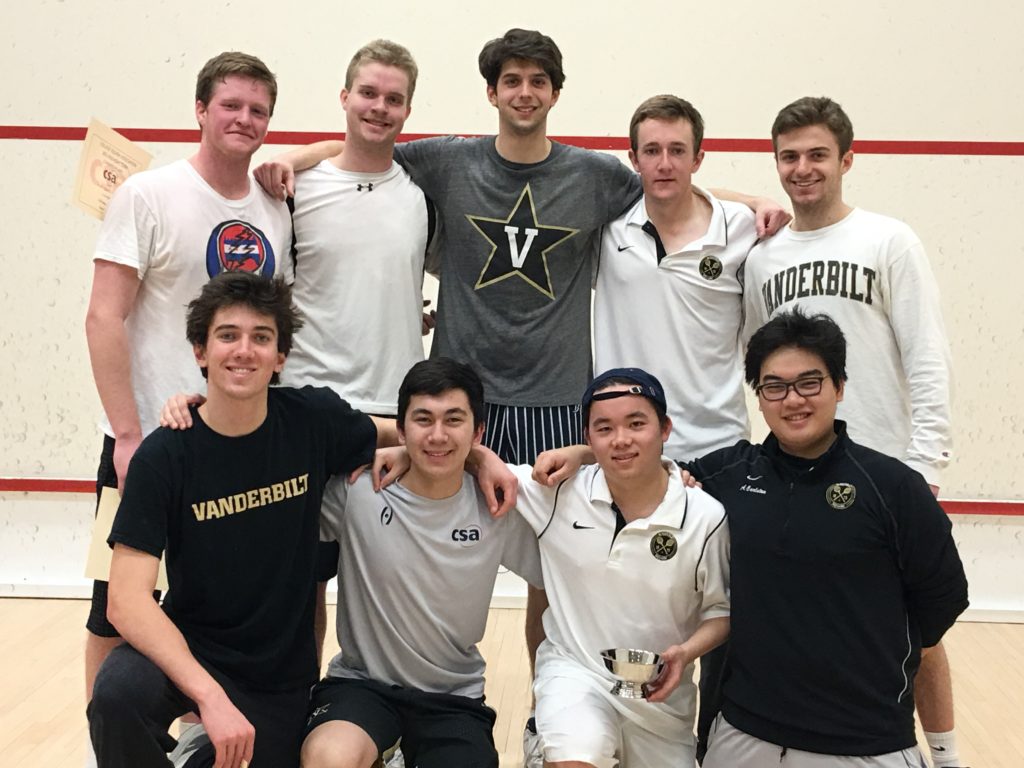
“In Nashville, the influx of new people has led the growth in squash,” said Shea Conaway, who restarted the state tournament after a fifteen-year gap. “Vanderbilt’s steady stream of students and professors from the coasts has been a foundation. Now I get players contacting me, wanting to play.”
Conaway, a non-student with playing privileges, reached out to players outside of Nashville and reinvented the tournament with five skill divisions and a $20 entry fee. Vanderbilt’s club team, led by Evan Wong, will provide a squash pipeline for Tennessee for years to come.
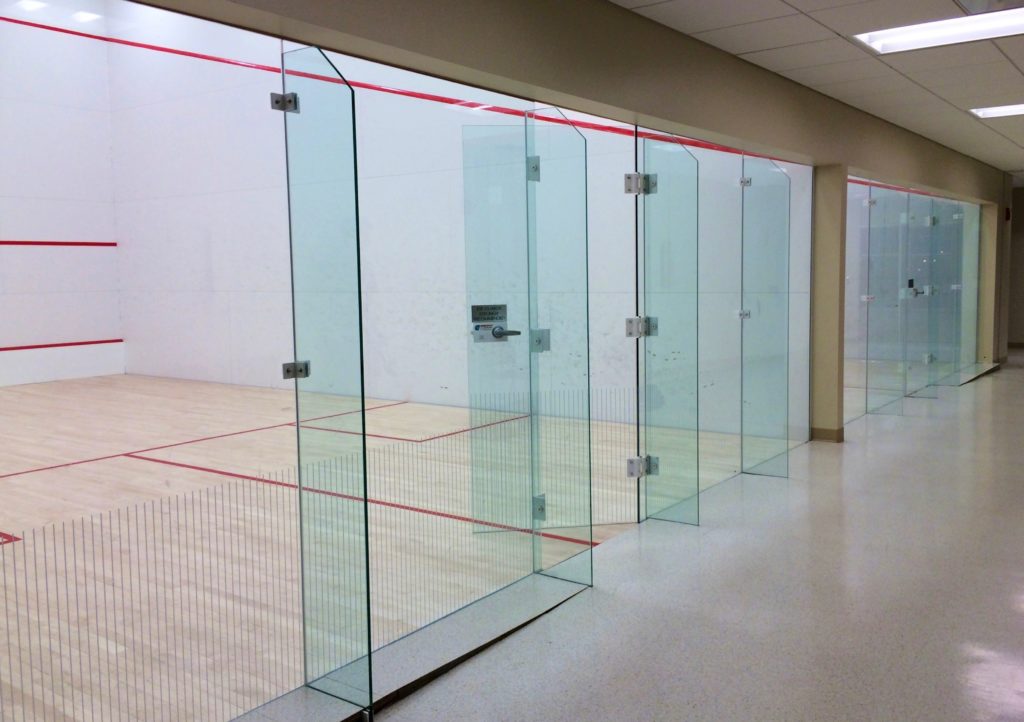
“We have always drawn from squash-playing schools due to Vanderbilt’s strong focus on academics,” Wong said. “Most of our players come from established high school programs such as Gilman, Middlesex, Collegiate, Lawrenceville, Belmont Hill and Rye Country Day, among others.”
Knoxille
In “Rocky Top,” where anything less than 100,000 at a college football game is a small crowd, Martin Daniel is Mr. Squash. Daniel owns a billboard company and started playing squash in Memphis twenty years ago. When he wants a game, though, Mr. Squash has to go to Nashville, Memphis, or Atlanta.
“There are two American courts at the University of Tennessee physical education building,” he said. “They have glazed floors and are in pristine condition. No one plays on them except racquetball players, and they’re inaccessible to people who are not affiliated with the university. I don’t know why Knoxville is lagging behind. The conversion court I built at the YMCA downtown was destroyed when a pipe burst back in 2012 and they declined to rebuild it. I have approached others about converting or building courts, with no takers.”
Chattanooga
Once known mainly for Rock City atop Lookout Mountain, railroad yards, the scenic Tennessee River and a reputation for extreme sports, Chattanooga has an influx of new residents including Germans working at the nearby Volkswagen factory. Outside magazine readers have twice voted it “Best Town Ever” and it will host the 2017 Ironman Triathlon.
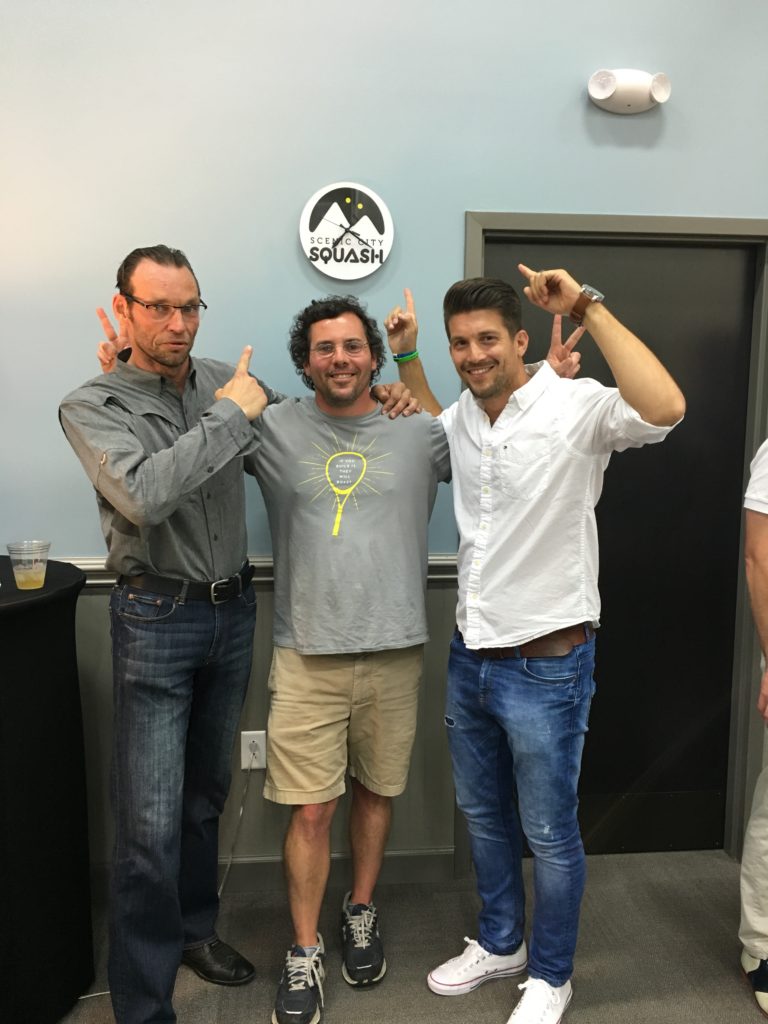 Mike Monen is betting big that squash can be part of the mix. The owner of a number of restaurants, Monen has built three new international courts that opened in May. Scenic City Squash, just south of downtown, is only seventy-five miles from Atlanta and 125 miles from Nashville, setting up a potential axis of southern squash.
Mike Monen is betting big that squash can be part of the mix. The owner of a number of restaurants, Monen has built three new international courts that opened in May. Scenic City Squash, just south of downtown, is only seventy-five miles from Atlanta and 125 miles from Nashville, setting up a potential axis of southern squash.
“My goal is to promote and spread my love of the game,” Monen said. “Building one court for my own enjoyment wasn’t going to do that. My wife and I have two children and there are three great boarding schools here. We want to bring in a pro and teach kids how to play.”
Monen grew up playing tennis and started playing squash eight years ago on a converted racquetball court. He studied clubs in Atlanta and Charleston, where squash is more established, then found a piece of property on a former manufacturing site and built three courts with room for a fourth. The center court has an adjustable tin to accommodate pro tournaments. “All my Atlanta friends are dying to come up and hit,” he said.



